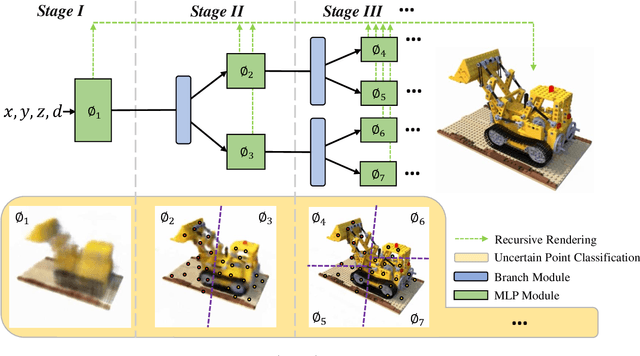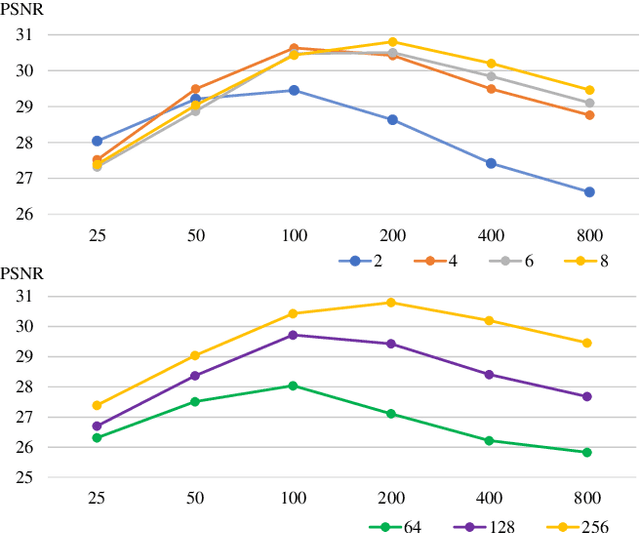Hao-Yang Peng
CharacterGen: Efficient 3D Character Generation from Single Images with Multi-View Pose Canonicalization
Feb 28, 2024Abstract:In the field of digital content creation, generating high-quality 3D characters from single images is challenging, especially given the complexities of various body poses and the issues of self-occlusion and pose ambiguity. In this paper, we present CharacterGen, a framework developed to efficiently generate 3D characters. CharacterGen introduces a streamlined generation pipeline along with an image-conditioned multi-view diffusion model. This model effectively calibrates input poses to a canonical form while retaining key attributes of the input image, thereby addressing the challenges posed by diverse poses. A transformer-based, generalizable sparse-view reconstruction model is the other core component of our approach, facilitating the creation of detailed 3D models from multi-view images. We also adopt a texture-back-projection strategy to produce high-quality texture maps. Additionally, we have curated a dataset of anime characters, rendered in multiple poses and views, to train and evaluate our model. Our approach has been thoroughly evaluated through quantitative and qualitative experiments, showing its proficiency in generating 3D characters with high-quality shapes and textures, ready for downstream applications such as rigging and animation.
Recursive-NeRF: An Efficient and Dynamically Growing NeRF
May 19, 2021



Abstract:View synthesis methods using implicit continuous shape representations learned from a set of images, such as the Neural Radiance Field (NeRF) method, have gained increasing attention due to their high quality imagery and scalability to high resolution. However, the heavy computation required by its volumetric approach prevents NeRF from being useful in practice; minutes are taken to render a single image of a few megapixels. Now, an image of a scene can be rendered in a level-of-detail manner, so we posit that a complicated region of the scene should be represented by a large neural network while a small neural network is capable of encoding a simple region, enabling a balance between efficiency and quality. Recursive-NeRF is our embodiment of this idea, providing an efficient and adaptive rendering and training approach for NeRF. The core of Recursive-NeRF learns uncertainties for query coordinates, representing the quality of the predicted color and volumetric intensity at each level. Only query coordinates with high uncertainties are forwarded to the next level to a bigger neural network with a more powerful representational capability. The final rendered image is a composition of results from neural networks of all levels. Our evaluation on three public datasets shows that Recursive-NeRF is more efficient than NeRF while providing state-of-the-art quality. The code will be available at https://github.com/Gword/Recursive-NeRF.
 Add to Chrome
Add to Chrome Add to Firefox
Add to Firefox Add to Edge
Add to Edge